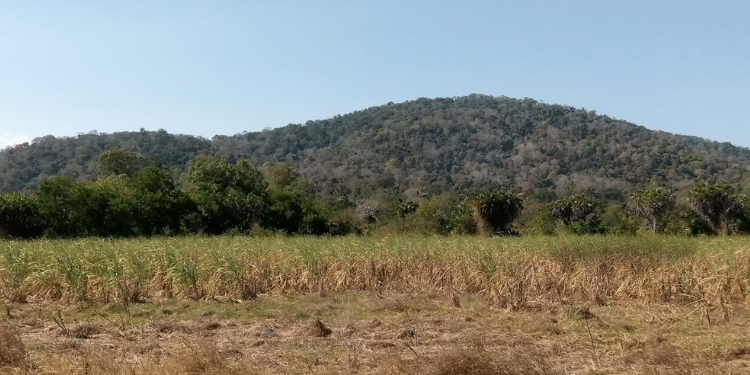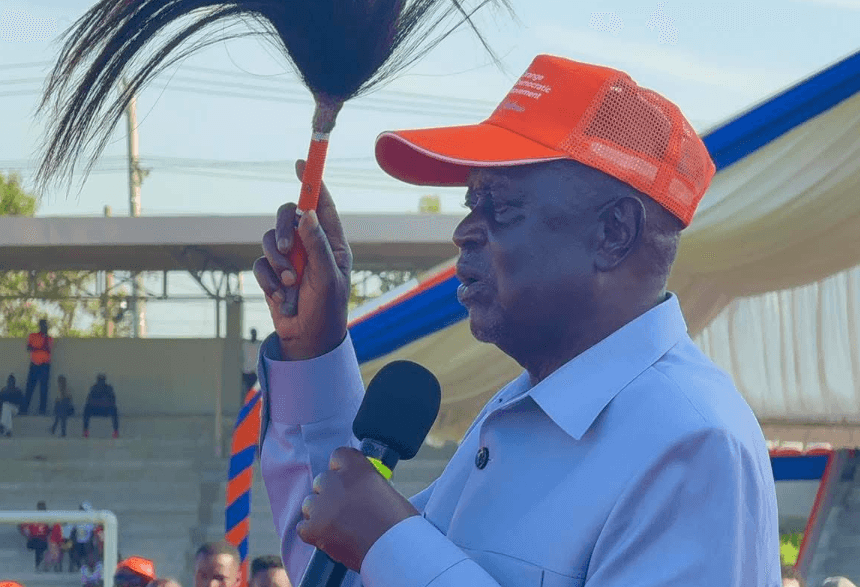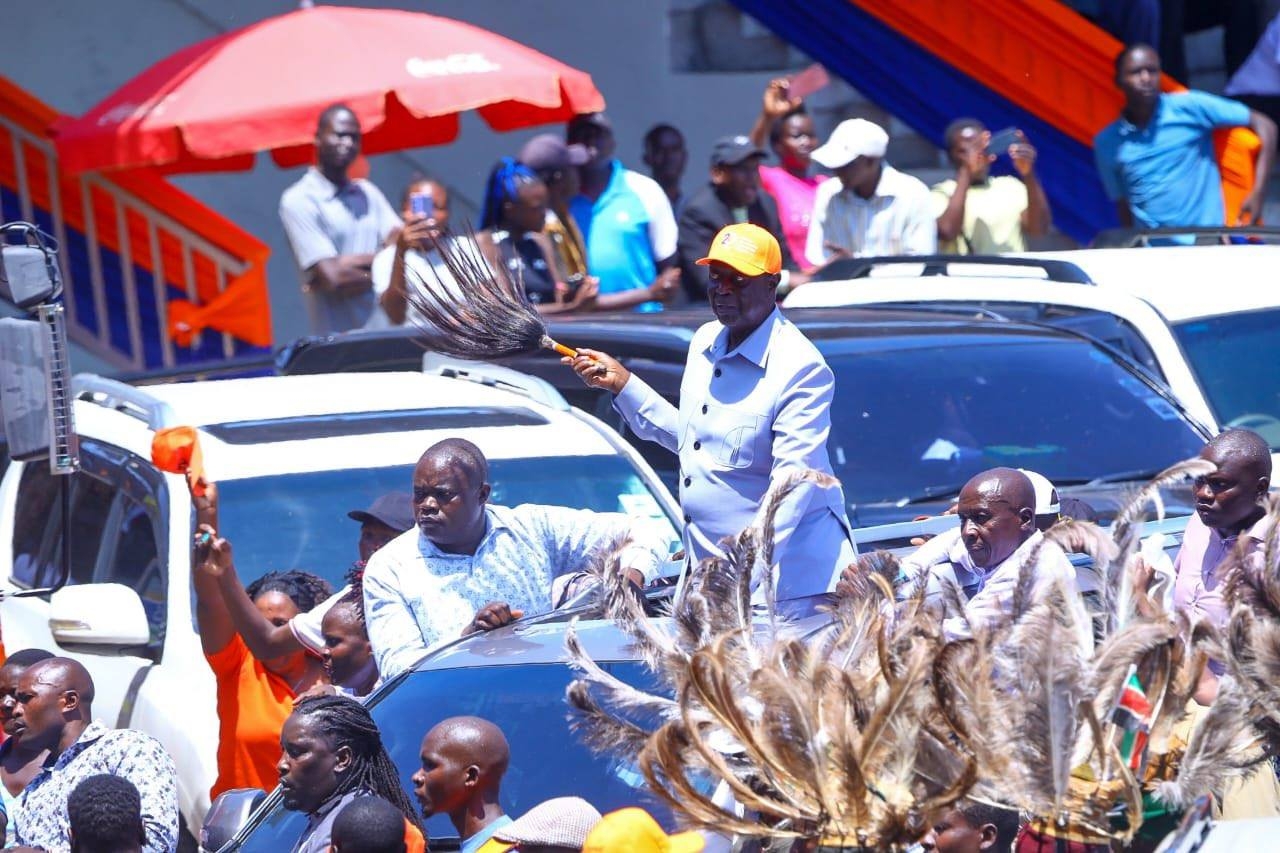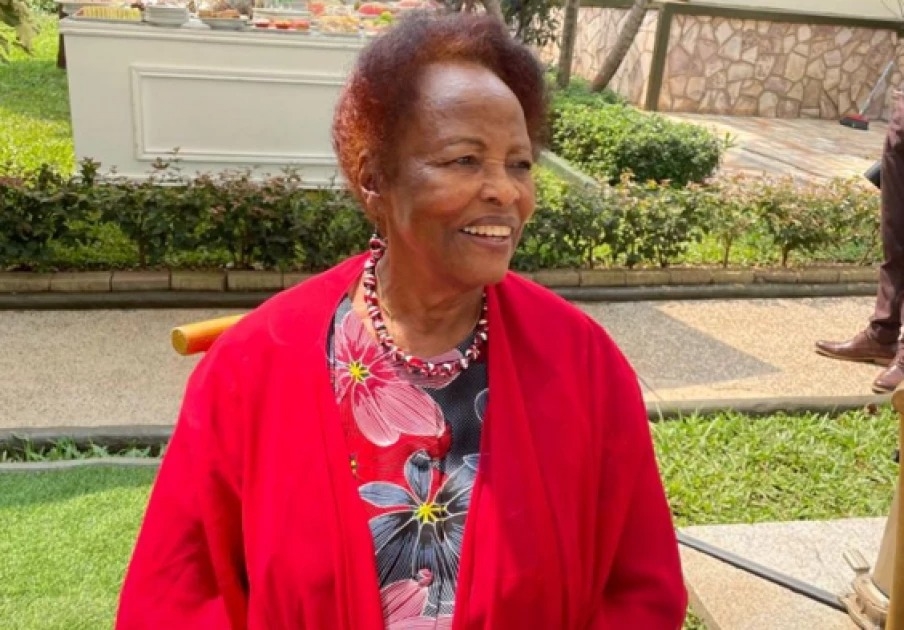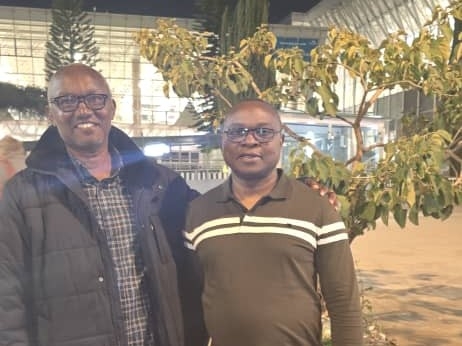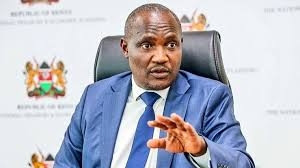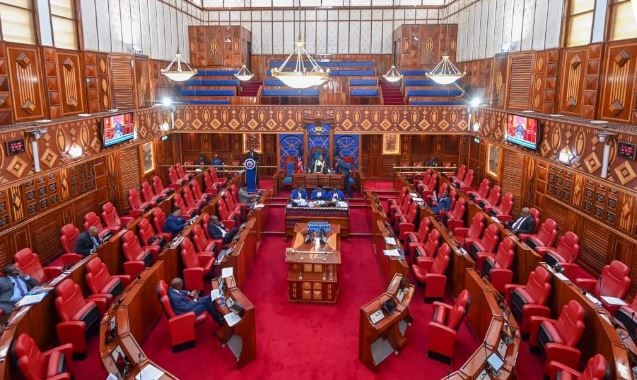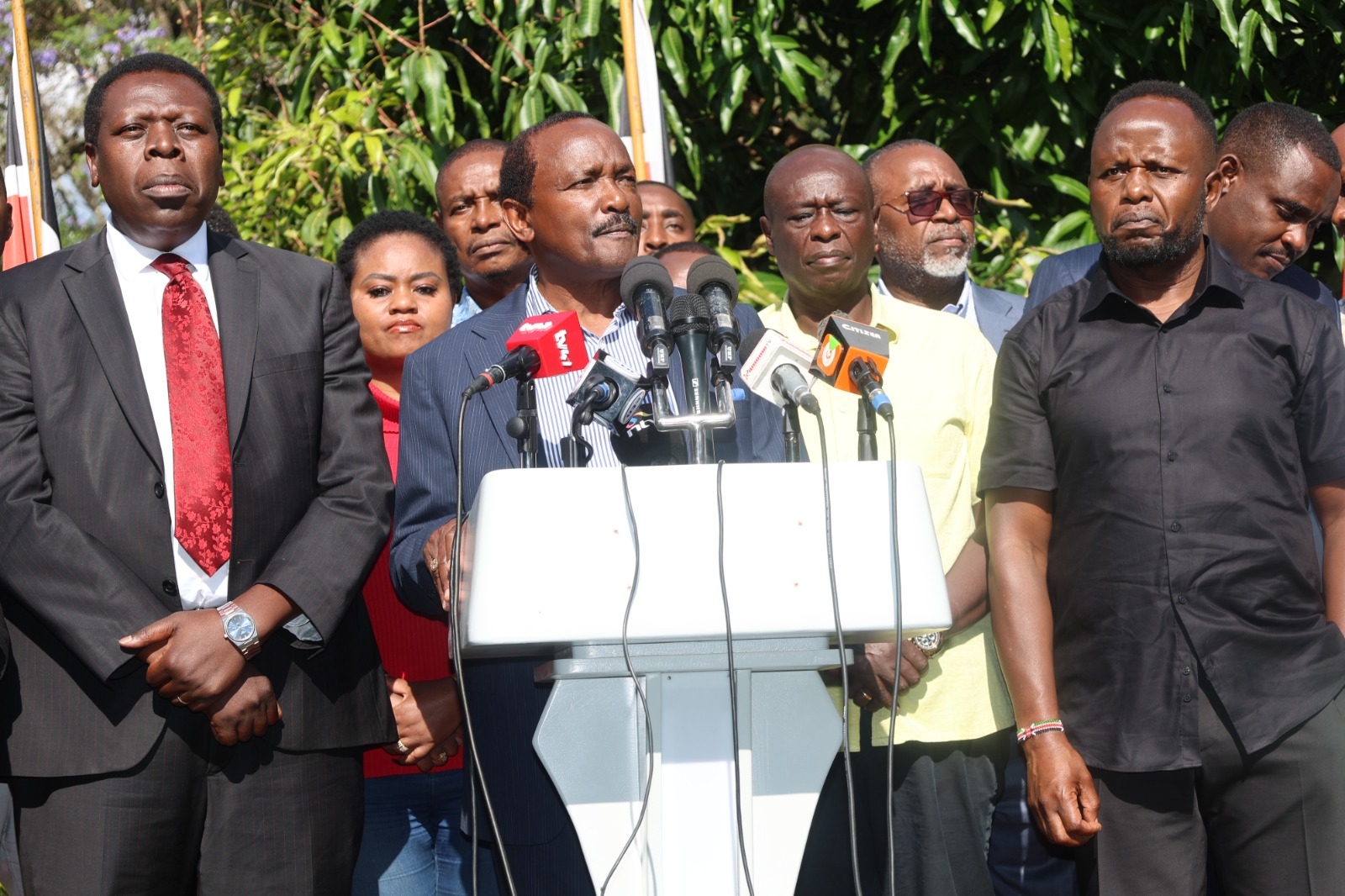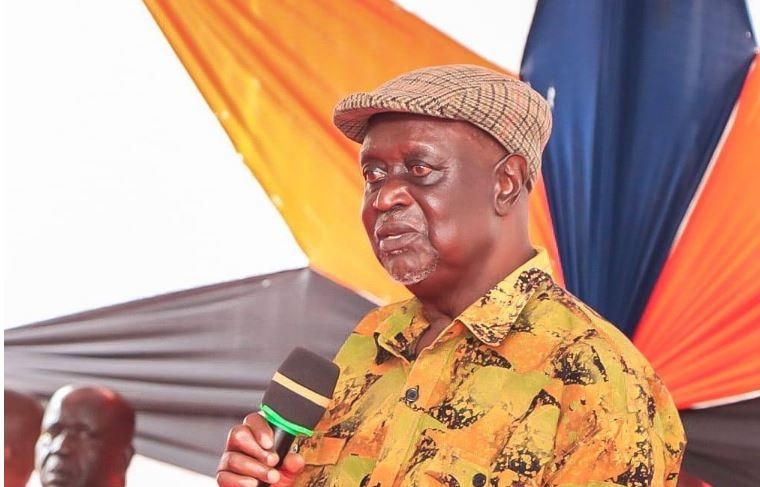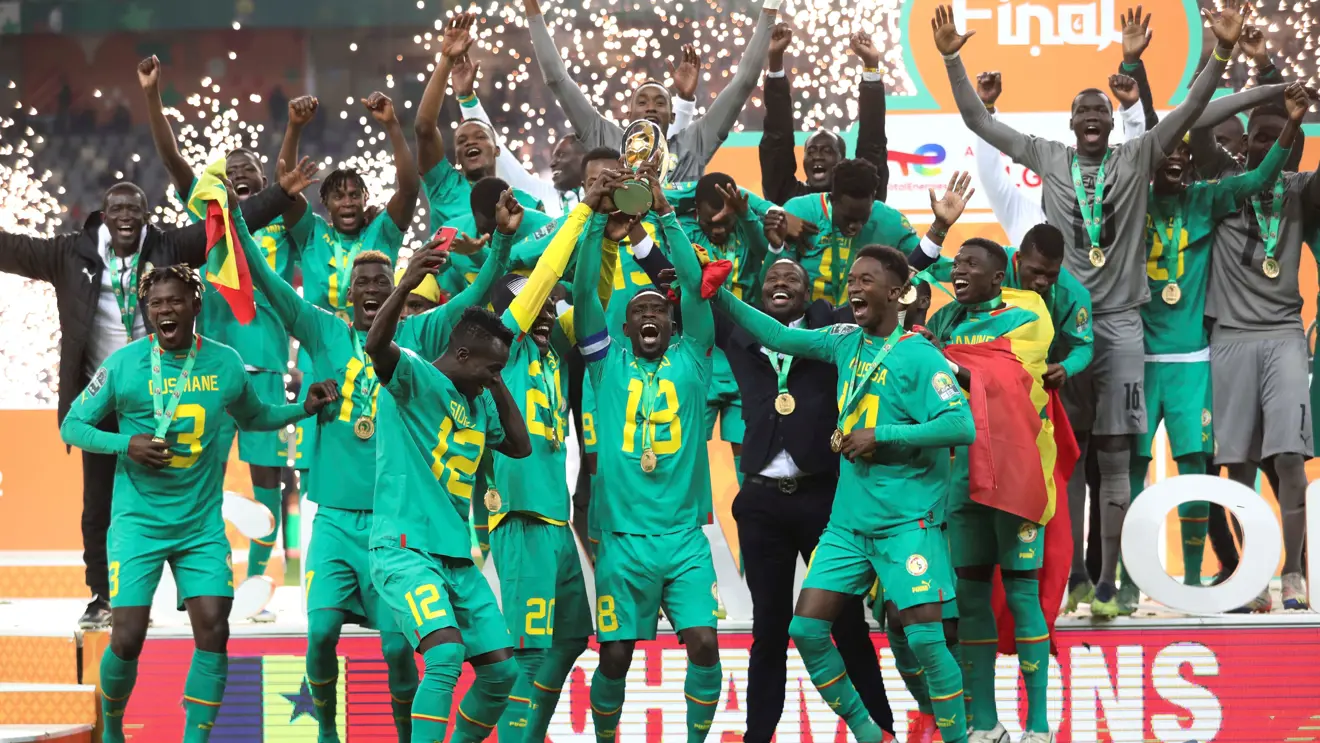 Senegal players celebrate after beating Algeria to win the 2022 CHAN/CAF
Senegal players celebrate after beating Algeria to win the 2022 CHAN/CAFThe eagerly-awaited TotalEnergies African Nations Championship was on Tuesday postponed for the second time in a row due to what organisers said was due to infrastructural hiccups.
The tournament, which was initially set for September 2024 before being pushed back to February 2025, will now be held in August.
The Confederation of African Football (CAF), in a statement, said there were no match venues that meet standards in some of the host countries.
Kenya, Uganda, and Tanzania won the bid to jointly host the competition.
What is CHAN?
The Championship of African Nations, or CHAN as is commonly known, is a prestigious continental football tournament organised by CAF.
CAF, established on February 8, 1957, is the administrative and controlling body for football in Africa.
Unlike the Africa Cup of Nations (AFCON), which features the top players, CHAN is exclusively for national teams composed only of players who play in their home country's local leagues.
CHAN, first introduced in 2009, is held every two years.
Who qualifies to host?
Hosting CHAN is a significant honor for any African nation, but it comes with considerable responsibility.
To be eligible, a country must meet specific criteria set out by CAF which include infrastructure, organisational capacity, political stability, and CAF’s inspection.
According to CAF, the host nation must have modern and adequate stadiums capable of accommodating international matches, with proper facilities for players, officials, and fans.
Once the country has won the bid, CAF officials visit to inspect its readiness, ensuring it complies with all requirements.
Additionally, the country must show that it has the logistical and administrative capacity to organise a tournament of such scale, including handling media, transportation, and hospitality.
Given the magnitude of the tournament, the host nation must also demonstrate political stability and the capacity to provide security for participants and spectators alike.
What are the requirements to qualify?
For the national teams looking to qualify, only players who are based in domestic leagues are eligible.
This makes the qualification process unique, as teams must focus on their local talent pool rather than overseas players.
The qualification for the tournament involves regional qualifiers.
Here, teams compete in regional qualifying rounds organised by CAF’s regional bodies: CECAFA (East Africa), UNAF (North Africa), UNIFFAC (Central Africa), WAFU (West Africa), and COSAFA (Southern Africa).
These qualifiers determine which teams will advance to the final tournament.
Player eligibility is also a factor. Only players who are registered with clubs in the domestic leagues of the participating countries can represent their national teams.
Why is it important?
CHAN serves an important role in African football by giving more exposure to local players and helping boost the development of domestic leagues.
It provides an opportunity for players who may not have the chance to play in international leagues to showcase their talents.
It also allows teams to build cohesion and pride around homegrown talent, which can eventually translate into success at other tournaments like the AFCON or FIFA World Cup.
The draw
CAF is set to conduct the official draw today (January 15) at KICC in Nairobi. A total of 17 countries have already qualified and include hosts Kenya, Uganda and Tanzania which have been seeded as A1, B1, and C1, respectively.
Other teams are Morocco, Guinea, Senegal, Mauritania, Niger, Burkina Faso, Nigeria, Central African Republic, the Democratic Republic of Congo, Sudan, Congo, Zambia, Angola, and Madagascar.
They will be seeded based on their performances in the previous three editions of CHAN (2018, 2020, and 2022). Two more teams will be confirmed for the finals to complete the lineup.
The draw ceremony will feature three African football legends—McDonald Mariga (Kenya), Hassan Wasswa (Uganda), and Mrisho Ngasa (Tanzania), who will conduct the draw. Pot 1 has Morocco and Senegal. Pot 2 consists of Guinea, Zambia, Madagascar, Rwanda, and Sudan.
Pot 3 has Mauritania, Niger, Congo, Angola, Burkina Faso, Nigeria, Central African Republic, and the Democratic Republic of Congo (DRC).
The draw is a crucial moment for the participating teams, as it sets the stage for the competition, where only players from domestic leagues are allowed to represent their countries.
Status of stadiums in host countries
Currently, big things with regard to the preparations for the competition are happening in the three host countries of Kenya, Uganda, and Tanzania.
In Kenya, the 60, 000 capacity Moi Sports Centre, Kasarani, and Nyayo National Stadium which can host 30,000 fans, will be the main venues.
The two facilities have been under renovation, with the works set to be completed this month, however Kenya’s Sports Principal Secretary (PS) Peter Tum has declared Nyayo National Stadium is fully prepared to host the African Nations Championship (CHAN).
"Nyayo is omplete and ready for CHAN: only the canopy remains, and that will be done post-tournament," Tum said.
Kasarani is being prepared for AFCON. The facility is 25 per cent done, but after CHAN it will be completed to meet AFCON standards."
Other venues that will be used for training are the Ulinzi Sports Complex and Police Sacco Stadium, among others.
In Tanzania, the 60,000-capacity Benjamin Mkapa Stadium and the 15,000-capacity Amaan Stadium in Zanzibar are the main venues reserved for the tournament.
Uganda, on the other hand, has the 45,000-seat Nelson Mandela Stadium and the 30,000-seat Nakivubo Stadium.




